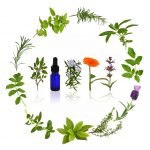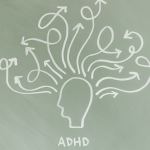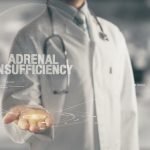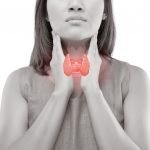Saunas May Lower Stroke Risk
Node Smith, ND
According to a recent study, using saunas regularly is associated with a reduction in stroke risk.1 Using a sauna 4-7 times per week was seen to lower stroke risk by 61 percent. This is the conclusion after a 15-year follow-up. This study is the first of its kind. The study was conducted through a collaboration with Universities of Eastern Finland, Bristol, Leicester, Atlanta, Cambridge and Innsbruck.
This study is the first of its kind
Stroke is amongst the top causes of death in the United States, and the leading cause of long-term disability. Roughly 800,000 people suffer from a stroke annually, and three-quarters of these are first attacks.
Stroke Prevention
Directly related to cardiovascular health, stroke prevention likely is well served by treatments and lifestyle interventions that support healthy vasculature, and especially healthy blood flow. Saunas and other hydrotherapy techniques are known to have a positive effect in this regard through multiple mechanisms. This is exciting supportive research.
Kuopio Ischaemic Heart Disease Risk Factor (KIHD) study
The results of this study are based on the Kuopio Ischaemic Heart Disease Risk Factor (KIHD) study, which included 1,628 individuals, both men and women of ages between 53 and 74 years. All participants were from Finland. Participants took traditional Finnish saunas with a humidity between 10-20%. There were 3 groups: individuals taking one sauna a week, 2-3 saunas a week, and those who sauna 4-7 times per week.
More weekly saunas reduces risk of stroke
The more saunas taken per week, the lower the stroke risk became. When groups were compared, those taking saunas 2-3 times per week had a decrease of stroke risk of 14 percent compared to those taking saunas once a week. The group taking saunas 4-7 times per week had a remarkable 61 percent decrease in stroke risk. This association was persistent even when other stroke risk factors were accounted for – age, sex, BMI, diabetes, cholesterol, alcohol consumption, socio-economic status, and exercise.
Saunas also were shown to significantly reduce cardiovascular disease and all-cause mortality
The study also mentions that saunas also were shown to significantly reduce cardiovascular disease and all-cause mortality. The mechanisms driving these associations were listed as stimulation of the immune system, lowered blood pressure, increase tone of the autonomic nervous system and enhanced cardiovascular function.
Researchers found that using saunas has acute effects on arterial wall stiffness
In a similar study, the same group of researchers found that using saunas has acute effects on arterial wall stiffness, which may be the deeper mechanism for improved cardiac function, including lowered blood pressure.2
Sources:
- Kunutsor, SK, Khan,H Zaccardi, F, et al.Sauna bathing reduces the risk of stroke in Finnish men and women: A prospective cohort study.Neurology, 03.01.2018. http://orcid.org/0000-0002-2625-0273
- Laukkanen JA, Laukkanen T, Khan H, Babar M, Kunutsor SK. Combined Effect of Sauna Bathing and Cardiorespiratory Fitness on the Risk of Sudden Cardiac Deaths in Caucasian Men: A Long-term Prospective Cohort Study. Prog Cardiovasc Dis. 2018.
Image Copyright: <a href=’https://www.123rf.com/profile_daoimages’>daoimages / 123RF Stock Photo</a>
 Node Smith, ND, is a naturopathic physician in Portland, OR and associate editor for NDNR. He has been instrumental in maintaining a firm connection to the philosophy and heritage of naturopathic medicine among the next generation of docs. He helped found the first multi-generational experiential retreat, which brings elders, alumni, and students together for a weekend camp-out where naturopathic medicine and medical philosophy are experienced in nature. Four years ago he helped found the non-profit, Association for Naturopathic ReVitalization (ANR), for which he serves as the board chairman. ANR has a mission to inspire health practitioners to embody the naturopathic principles through experiential education. Node also has a firm belief that the next era of naturopathic medicine will see a resurgence of in-patient facilities which use fasting, earthing, hydrotherapy and homeopathy to bring people back from chronic diseases of modern living; he is involved in numerous conversations and projects to bring about this vision.
Node Smith, ND, is a naturopathic physician in Portland, OR and associate editor for NDNR. He has been instrumental in maintaining a firm connection to the philosophy and heritage of naturopathic medicine among the next generation of docs. He helped found the first multi-generational experiential retreat, which brings elders, alumni, and students together for a weekend camp-out where naturopathic medicine and medical philosophy are experienced in nature. Four years ago he helped found the non-profit, Association for Naturopathic ReVitalization (ANR), for which he serves as the board chairman. ANR has a mission to inspire health practitioners to embody the naturopathic principles through experiential education. Node also has a firm belief that the next era of naturopathic medicine will see a resurgence of in-patient facilities which use fasting, earthing, hydrotherapy and homeopathy to bring people back from chronic diseases of modern living; he is involved in numerous conversations and projects to bring about this vision.










